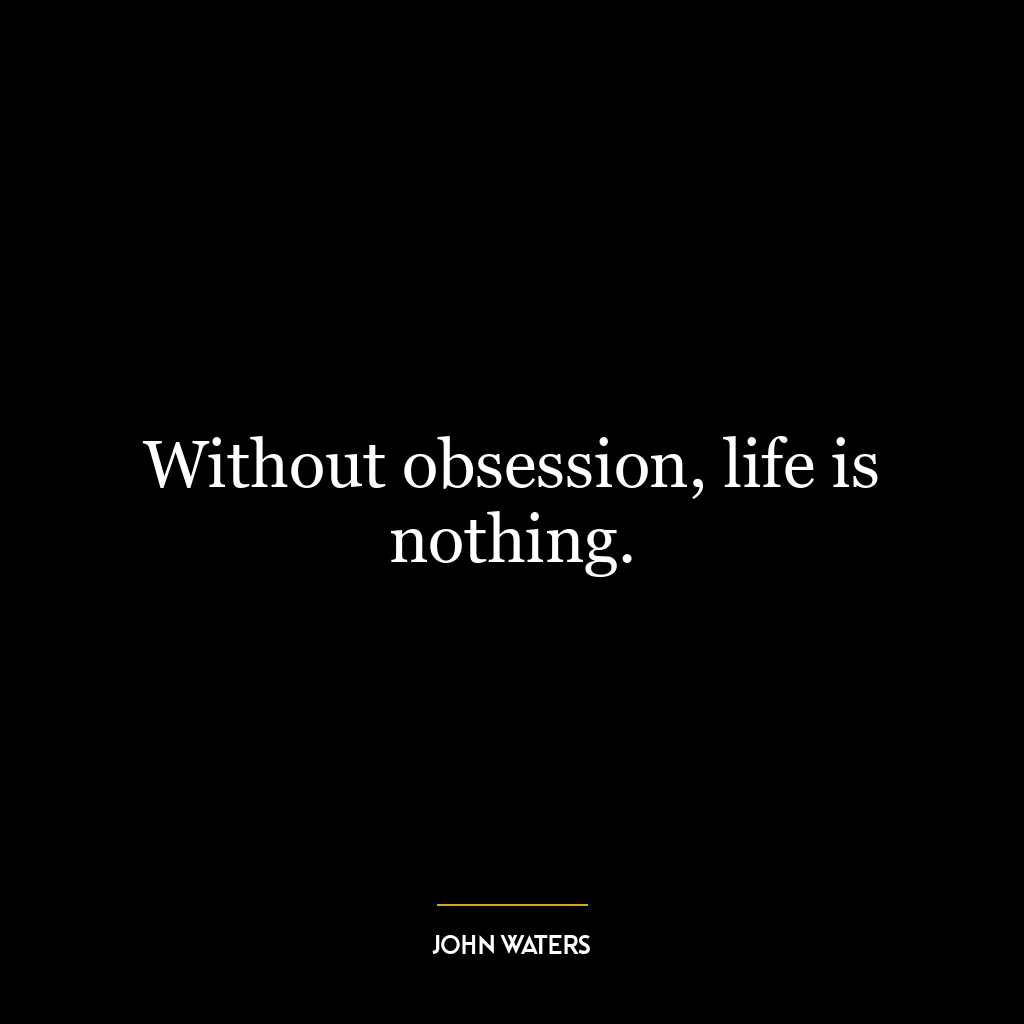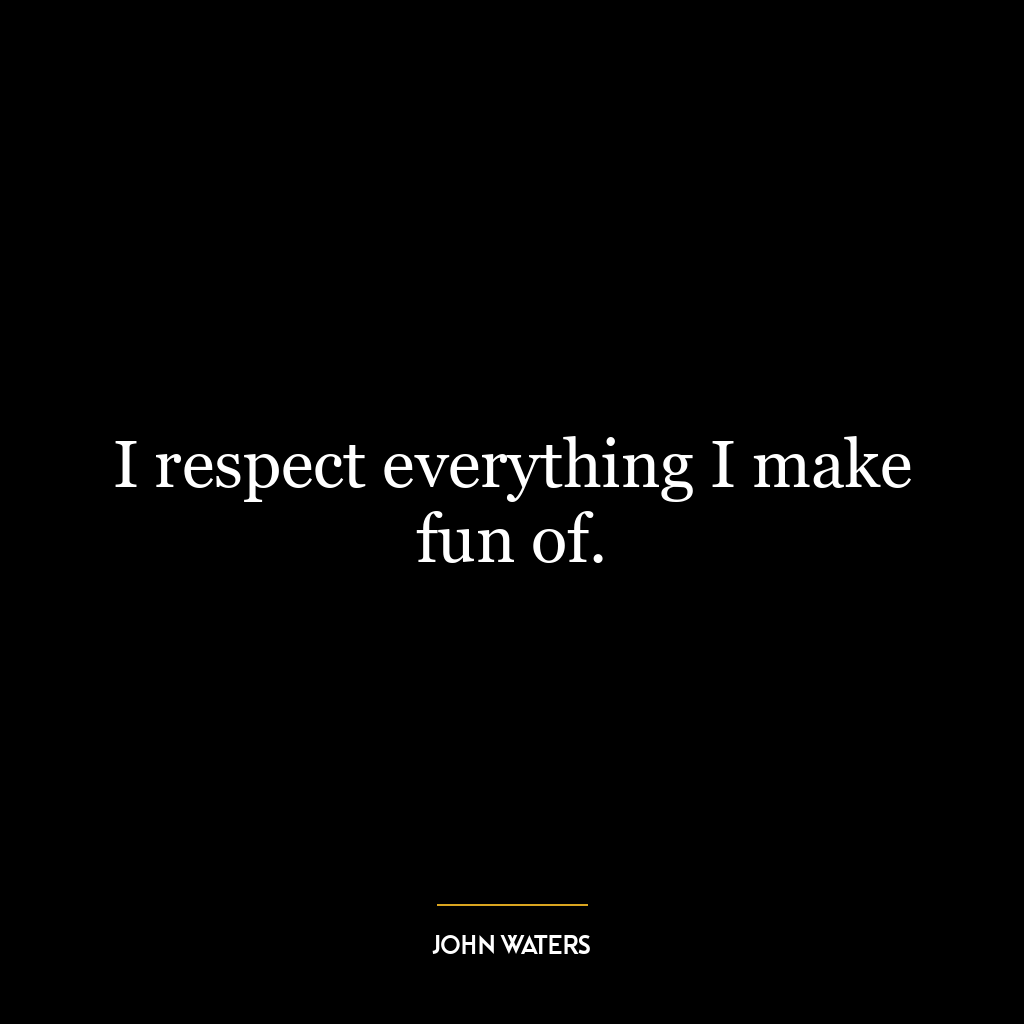John Waters Quotes
- Filmmaker
- USA
- 1946
John Waters is an American filmmaker, actor, author, and visual artist. He is famously known for his cult classic films such as Pink Flamingos, Hairspray, and A Dirty Shame. Waters has been referred to as the “Pope of Trash” and “The Sultan of Sleaze” due to his unique and often controversial style…Read More
John Waters is an American filmmaker, actor, author, and visual artist. He is famously known for his cult classic films such as Pink Flamingos, Hairspray, and A Dirty Shame. Waters has been referred to as the “Pope of Trash” and “The Sultan of Sleaze” due to his unique and often controversial style of filmmaking.Read Less
John Waters is an American filmmaker, actor, author, and visual artist. He is famously known for his cult classic films such as Pink Flamingos, Hairspray, and A Dirty Shame. Waters has been referred to as the “Pope of Trash” and “The Sultan of Sleaze” due to his unique and often controversial style of filmmaking.
22 Best John Waters Quotes
John Waters Career Highlights
- Waters’ career began in the 1960s with his first short film, “Hag in a Black Leather Jacket,” which he made with a borrowed 8mm camera. This film set the tone for his future works, which were often low-budget and featured unconventional subject matters.
- In 1972, Waters released his first feature film, “Pink Flamingos,” which became a cult classic and established him as a leading figure in the underground film scene. The film was known for its outrageous and taboo-breaking content, including scenes of nudity, violence, and bestiality.
- Waters continued to push boundaries with his subsequent films, including “Female Trouble” (1974), “Desperate Living” (1977), and “Polyester” (1981). These films gained a cult following and solidified Waters’ reputation as the “Pope of Trash.”
- In 1988, Waters released his most commercially successful film, “Hairspray,” which was a musical comedy about racial integration in 1960s Baltimore. The film was a critical and commercial success and was later adapted into a Broadway musical and a film remake.
- Waters’ career has also extended beyond filmmaking. He has written several books, including “Shock Value: A Tasteful Book About Bad Taste” (1981) and “Role Models” (2010). He has also had success as a visual artist, with his works being exhibited in galleries and museums around the world.
Key Contributions by John Waters
- John Waters’ films have been praised for their unique and unapologetic style, which often challenges societal norms and conventions. He has been a pioneer in the underground film scene and has inspired many filmmakers to push boundaries and explore unconventional themes.
- Waters’ films have also been credited with breaking down barriers and promoting diversity and inclusivity. His films often feature characters from marginalized communities, such as drag queens, transgender individuals, and people of color, and he has been a vocal advocate for LGBTQ+ rights.
- Waters’ influence extends beyond the film industry. He has been a major influence on the punk and DIY movements, and his works have been referenced in music, fashion, and art.
What Sets John Waters Apart
- One of the key factors that sets John Waters apart is his fearlessness in tackling taboo subjects and pushing boundaries. He has never shied away from controversy and has always been unapologetic about his unconventional and often shocking content.
- Waters’ unique and distinctive style, often referred to as “camp,” has also set him apart from other filmmakers. His films are known for their over-the-top humor, exaggerated characters, and kitschy aesthetics, which have become synonymous with his name.
- Waters’ ability to blend humor with social commentary and satire is another aspect that sets him apart. While his films may seem outrageous and absurd on the surface, they often have deeper messages and critiques of society’s norms and values.
Takeaways
- John Waters’ career highlights the importance of staying true to one’s vision and not conforming to societal expectations. Despite facing criticism and censorship, Waters has remained true to his unique style and has continued to create works that challenge and provoke.
- Waters’ career also showcases the power of art to break down barriers and promote inclusivity. His films have given a voice to marginalized communities and have helped to promote acceptance and understanding.
- Finally, Waters’ career serves as a reminder that success can come from unexpected places. Despite starting with low-budget and unconventional films, he has achieved critical and commercial success and has become a highly influential figure in the film industry.





























